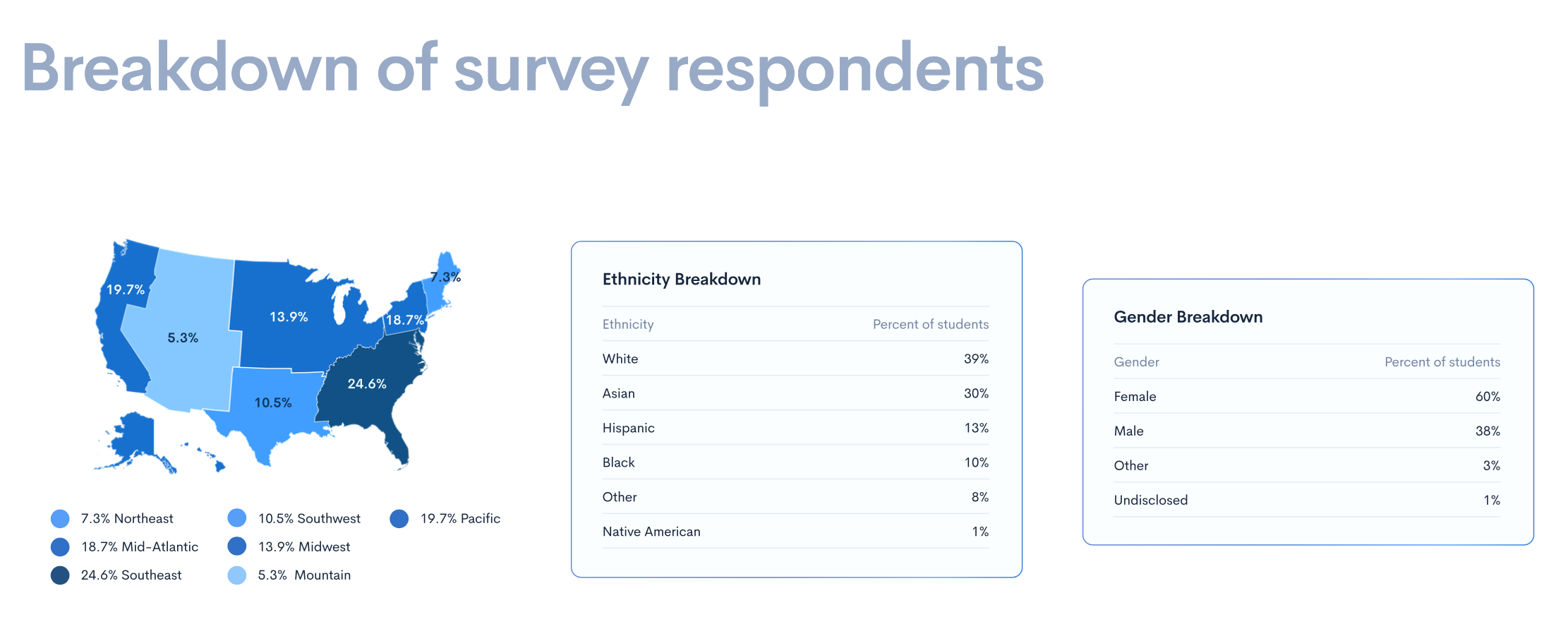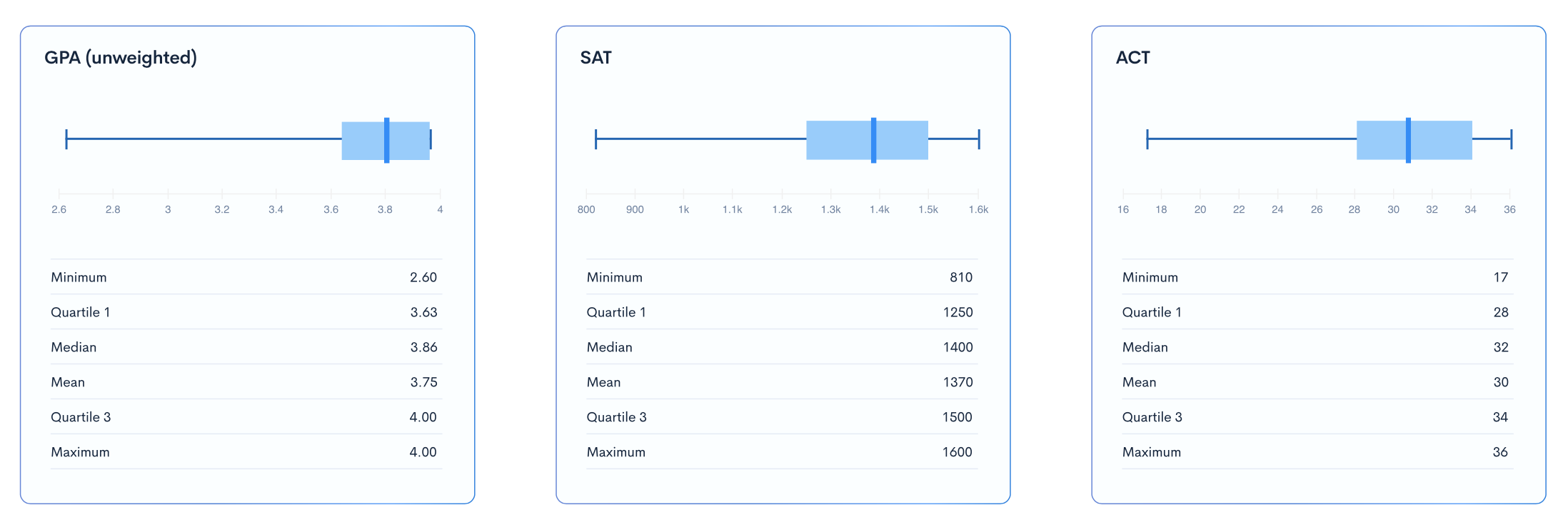What are students looking for in a college? Do they tend to view college primarily in practical terms, as academic and career preparation? Or do they prioritize the experiential aspects and personal growth?
We surveyed thousands of students to better understand how they’re approaching their college search. In this post, we’ll share our findings and how they may impact your enrollment strategy.
Key Takeaways
- Students prioritize a college’s academic experience and career preparation above all else. Academic and career factors took up the top five rankings and remained in the top six when adjusted for intensity (percentage of students who rated it as “very important”).
- Give special attention to the strength of the student’s program for their major, and career-related resources, such as internships, recruiting partnerships, etc.
- Despite ranking practical academic and career factors as the most important, students still hold a more idealistic view of their major and career, prioritizing academic exploration and career fulfillment over financial success.
- It may be worth highlighting academic opportunities that allow students to pursue independent projects and passions. To help students find fulfilling careers, consider providing mentorship from alumni or career development programs.
- Affordability is a top priority for most students (ranked 6th), and when it matters to them, it matters a lot (ranked 2nd when adjusted for intensity).
- Students who care about affordability often focus on ROI as well, so more expensive schools may still be able to attract these students by highlighting salary and career outcomes.
- Prestige is important to students (ranked 14th of 24), but it’s not top of mind. In fact, when adjusted for intensity, it drops to 19th.
- Rather than advertise overall rankings, highlight the rigor and reputation of the specific academic program students are interested in.
- The campus community is more important to students than the school’s physical environment.
- Students want to feel reassured that the campus is safe and welcoming for students like them. Sharing student groups related to their interests and background may help achieve this.
Our Methodology
In June and July 2021, CollegeVine conducted a survey of more than 4,000 users in the high school graduating Class of 2021. The survey explored the importance of 24 distinct preference factors on their college choice.
The numbers cited in this post come from both the survey results and CollegeVine’s proprietary data, which helps us add color to the survey results.
Starting with the original survey, we randomly sampled respondents to get a set of responses that are representative of strong applicants to top 250 colleges and universities in the US.
You can find the demographic breakdown of the survey respondents at the end of the post.
Students prioritize a college’s academic experience and career preparation above all else.
The top five preference factors were:
- Career outcomes for graduates
- College help with internships
- Strength of program for my major
- Grad school placement rates
- Experiential learning opportunities
The latter four came in 2nd as a tie. When adjusted for intensity, Affordability rose from 6th to 2nd, but these five academic factors remained in the top six.
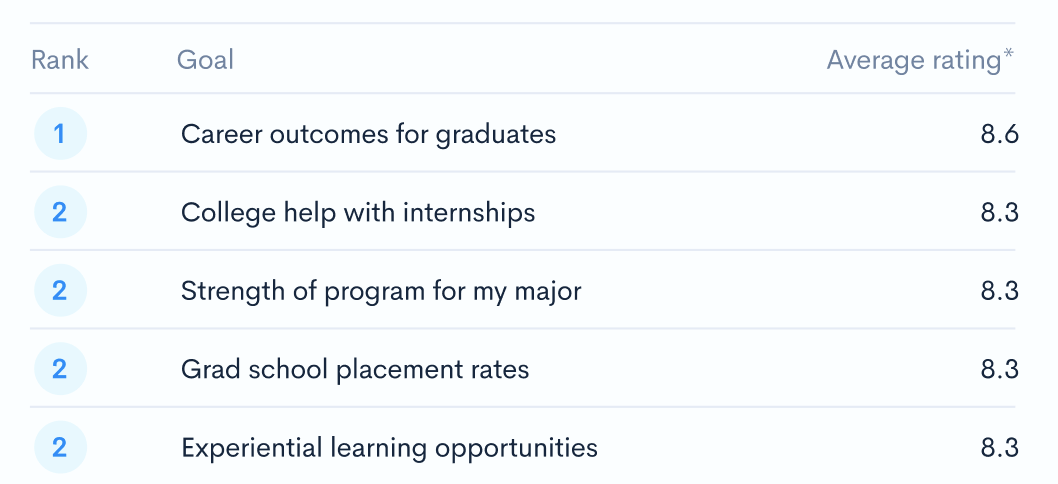
Even though research suggests that students will change their declared major at least once while on campus, the majority of students are applying to college with a specific course of study in mind. In fact, more than 75% of students in our survey applied to college with an explicit academic program in mind. Finding a top program for their specific major of interest also ranked second out of 24 college preference factors in the survey when adjusted for intensity.
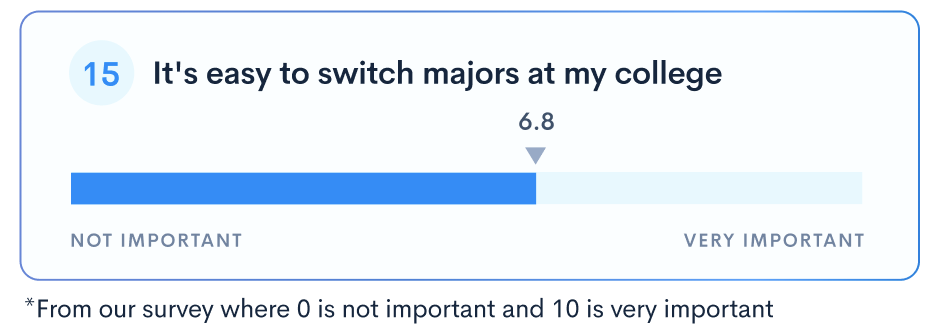
So, when discussing academics at your college with prospective students, consider prioritizing rigor and career outcomes over flexibility in the curriculum. When possible, tailor the discussion to the student’s specific major since a strong program for their major is so key to their college preferences.
Students still have an idealistic orientation towards their college experience and future career.
Recent years have seen a trend towards discussing colleges and student college choice in explicitly transactional terms. College is increasingly discussed and described as a mere stepping stone towards future employment opportunities. You might expect students to lean in this direction too, as they’ve ranked practical major and career factors as top of mind.
But for students, the traditional elements of the college experience still hold immense appeal. Students ranked exploring academic interests and passions and gaining independence as more important goals for college than gaining a valuable credential or using college as a springboard to a high-earning career.
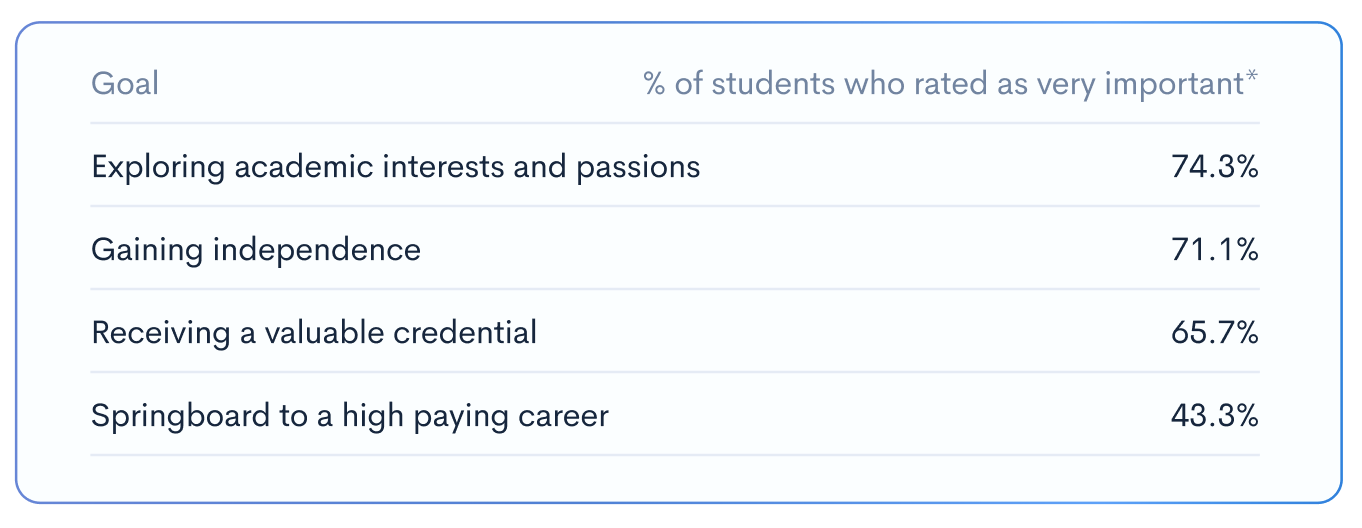
Even as they looked ahead to their careers, students had a more idealistic worldview. Finding a career that they enjoyed and making a positive impact on the world ranked more highly for students than achieving financial security or success.
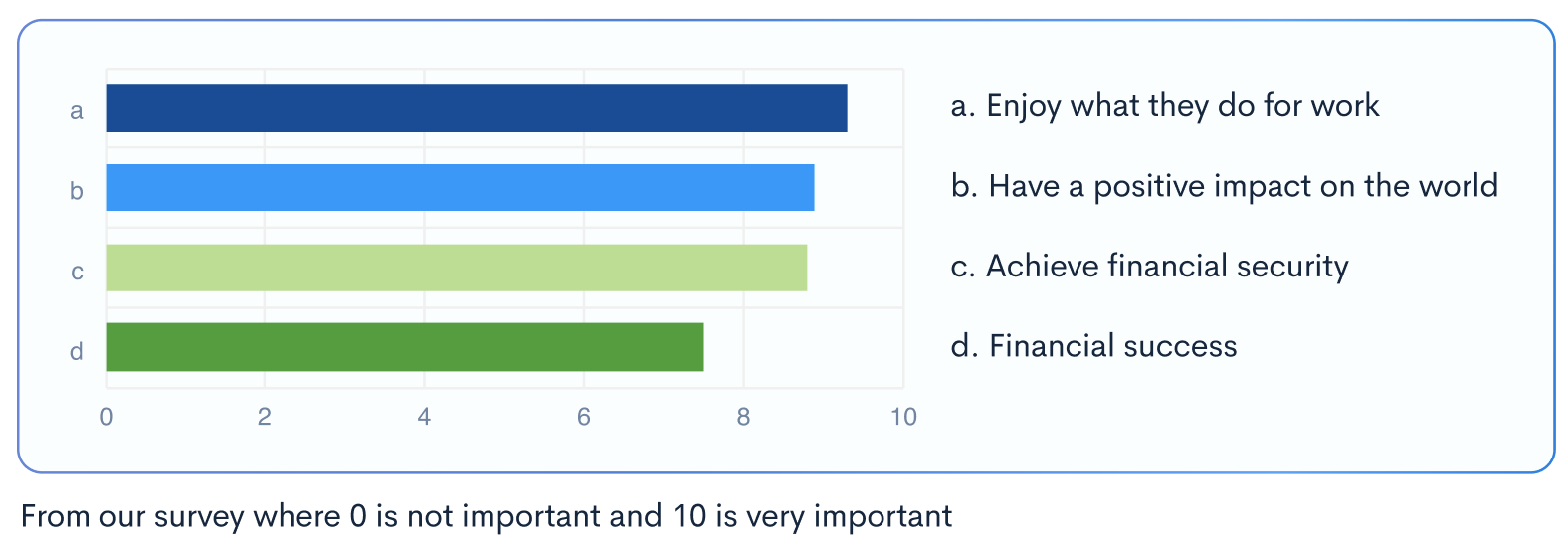
So, while it’s important to emphasize the practical side of academics and career preparation, students still want to know that they’ll enjoy their studies and beyond.
Take care to highlight academic opportunities that allow students to pursue independent projects and passions, such as special topics courses, research, or grants.
To help students find fulfilling careers, consider providing mentorship from alumni or career development programs. When surveying alumni for career outcomes, it may be valuable to ask about career fulfillment as well.
When affordability matters, it really matters.
Affordability ranked 6th out of the 24 factors surveyed, but ranked second in intensity. Not every student is laser focused on affordability, but amongst the students that care about it, it is top of mind.
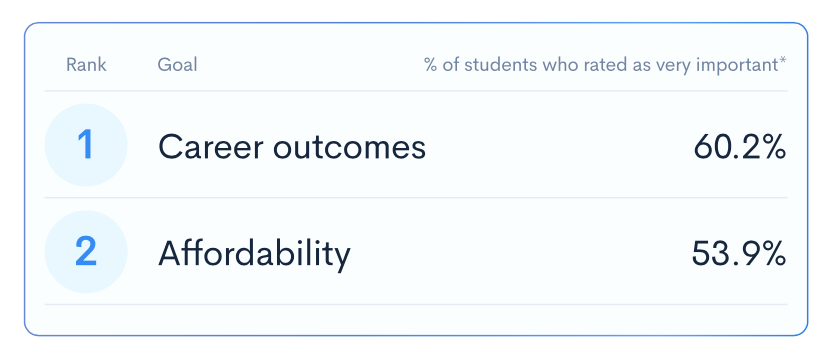
Students focused on affordability overlap heavily with career minded students, so colleges with a higher tuition fee that can make a strong ROI case may still be able to reach these students.
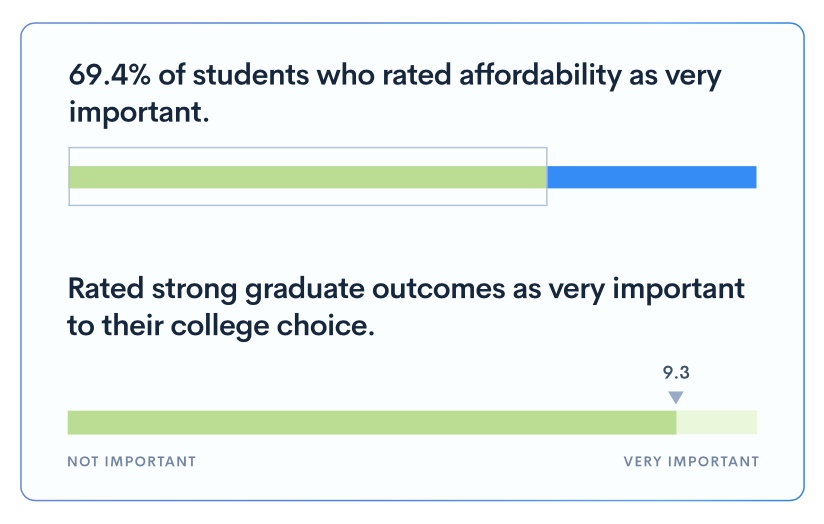
Prestige is important but not top of mind for most students.
College rankings play an important role in the college search process, but prestige isn’t necessarily top of mind for the majority of students. Prestige ranked 14th out of the 24 preference factors in our survey. Additionally, when we measured the intensity of this importance, its ranking actually dropped to 19th out of 24 factors.
Rather than advertise overall rankings, consider highlighting the rigor and reputation of the specific academic program students are interested in. This is likely a bigger draw, especially since students ranked strength of program for their major as 2nd overall when adjusted for intensity.
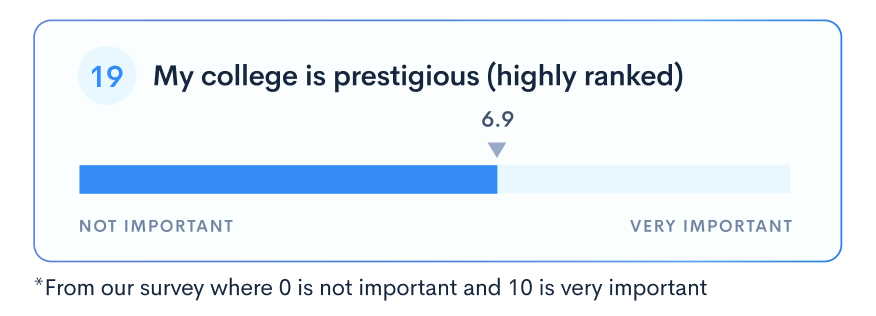
However, many students use college rankings not just as a measure of prestige, but also as a proxy for the strength of programs in particular majors or the ability of a college to enable strong employment outcomes for its students. Until colleges give students a more direct way of exploring these questions, undifferentiated and context-less ranking systems will unfortunately continue to play a central role in how students choose a college.
Community on campus plays a more central role in student college choice than what is traditionally thought of as the campus environment.
While academic and career goals were top of mind for most students, the strength of a college’s community was actually more important for students than the campus environment.
Students placed particular emphasis on socializing with their peers (ranked 10th out of 24 preference factors), and participating in clubs and other extracurricular activities on campus (8th). These factors were more important to students than the campus environment and architecture (11th), weather (tied for 15th), and college location (19th).
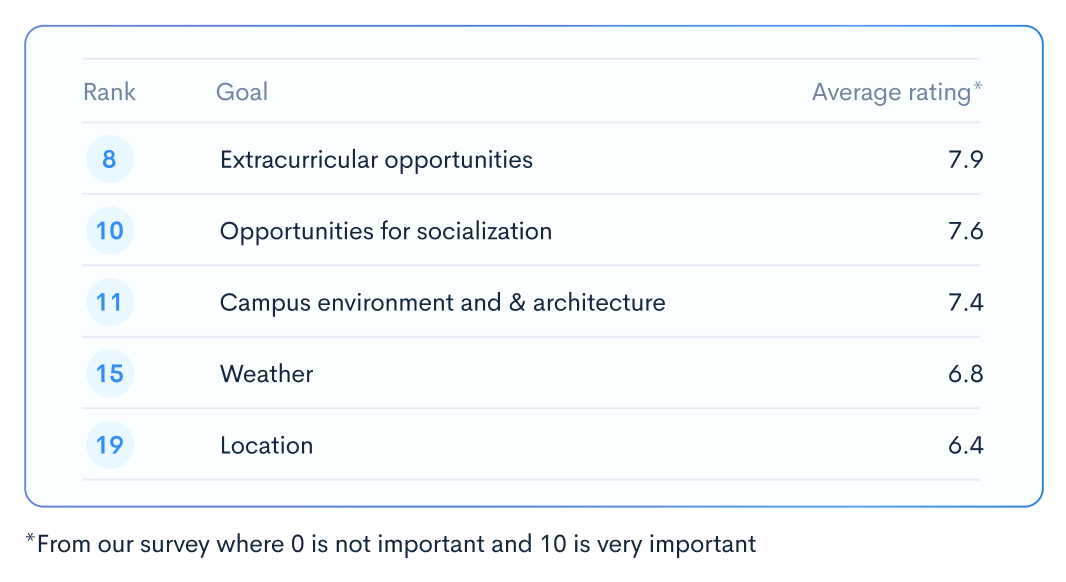
A critical measure of a community’s health for students is their perception of how welcoming the college community is. Finding a campus that is both safe and welcoming for LGBTQIA+ students and racially and culturally diverse ranked just outside the Top 10 of the 24 preference factors surveyed (12th and 13th). But the perception that college was safe and welcoming for them specifically rated even higher (7th).
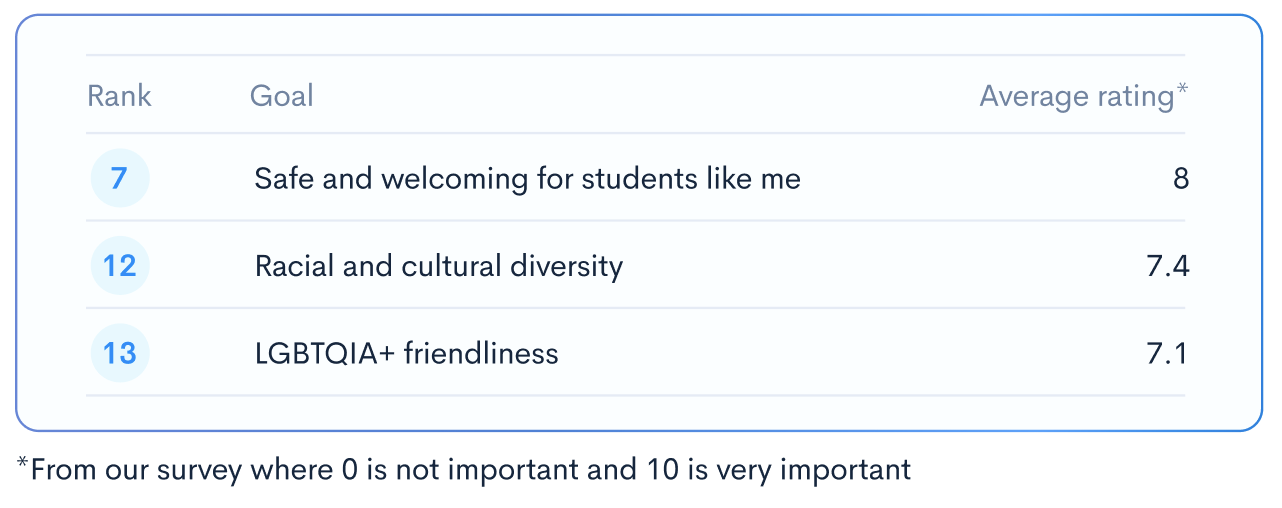
Colleges have historically done a good job of highlighting their initiatives to promote safety and inclusion specifically for LGBTQIA+ students and BIPOC students, but could do a better job of highlighting the ways in which they help students outside of those groups feel welcome and thrive on campus.
Students are also looking to build a community that is distinct from their experiences at their high school and in their hometown. 67.7% of students rated meeting new people in college as a top goal for their university experience, and placed little value on their pre-existing peer network on campus, ranking it 23rd out of the 24 preference factors surveyed. Students want to build a new social and professional network on campus rather than transplanting their pre-existing network to a new environment.
Overall Rankings and Final Thoughts
There’s a multi-year trend towards purely seeing college as a stepping stone to a career, but a strong majority of students still want college to fulfill its traditional role as an academic, social, and developmental experience.
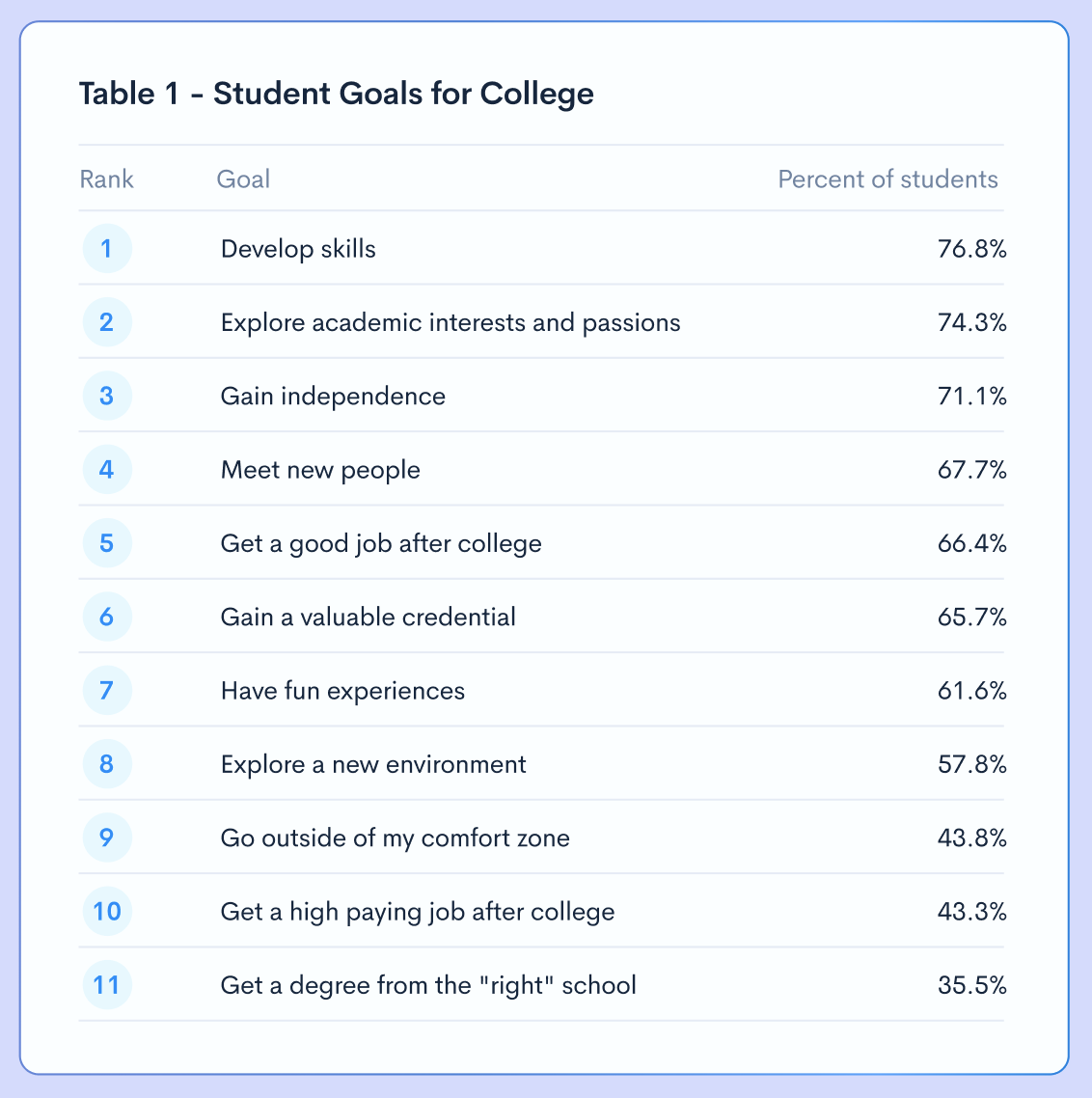
Students are most focused on the college academic experience and on using college as a springboard to a strong start to their career. They also value finding a community on campus and affordability, while other aspects of the college experience are valued by specific types of students.
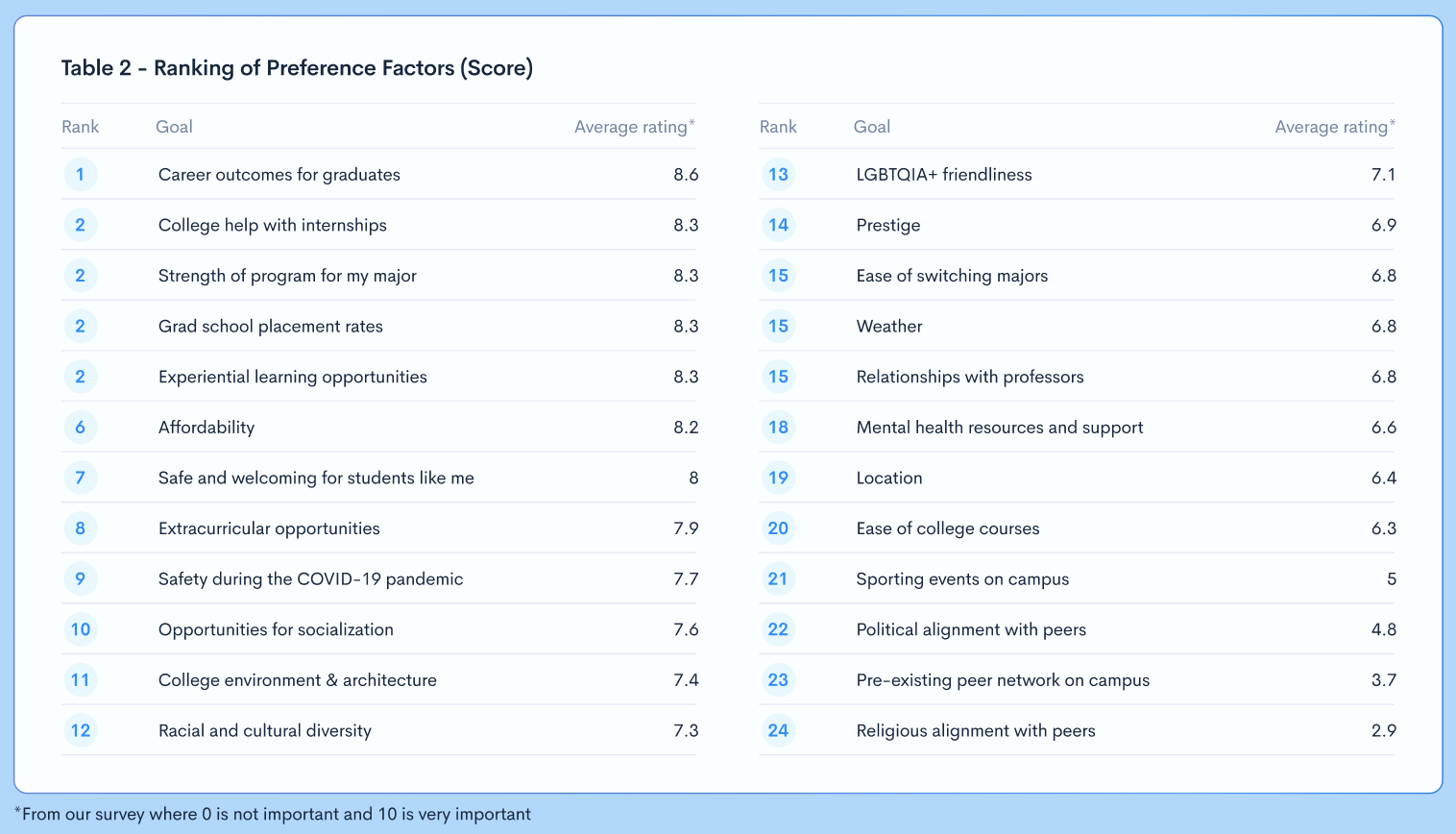
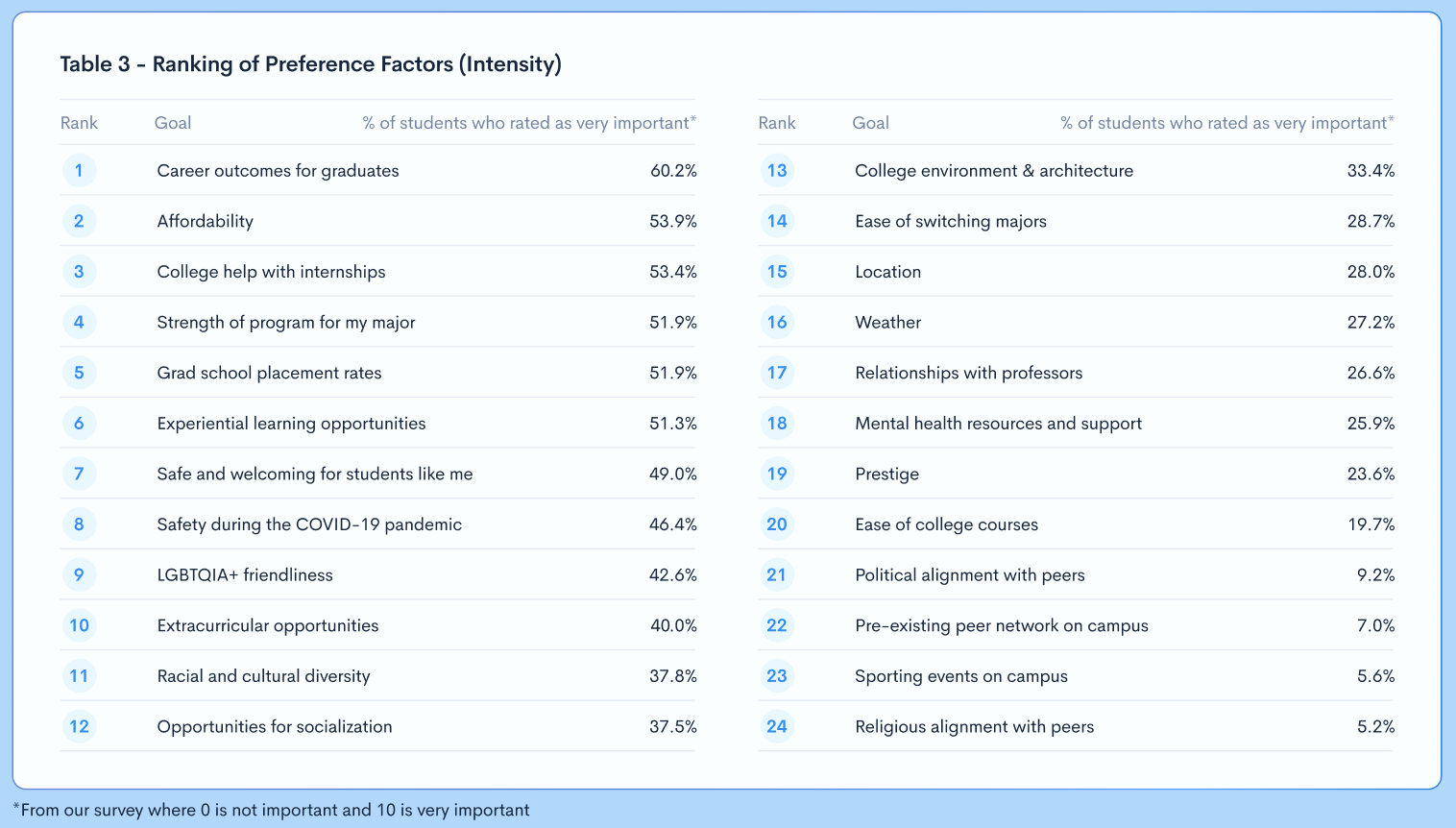
For more college enrollment insights, subscribe to our mailing list below, where we’ll send weekly updates!
Demographic Breakdown of Survey Respondents
